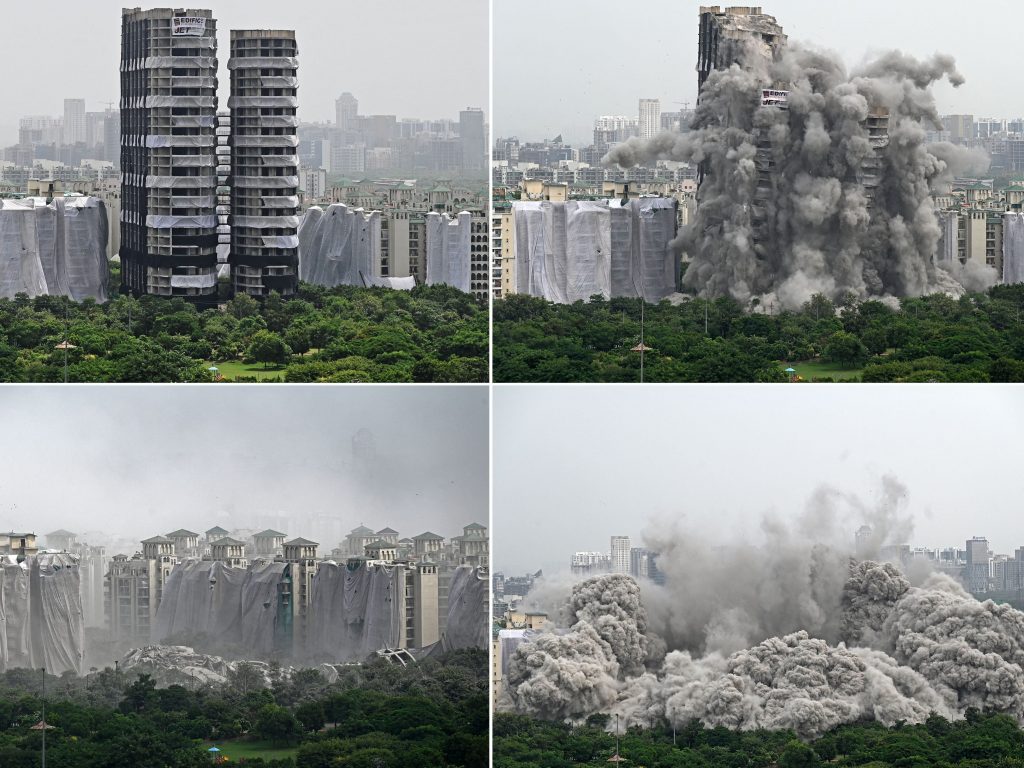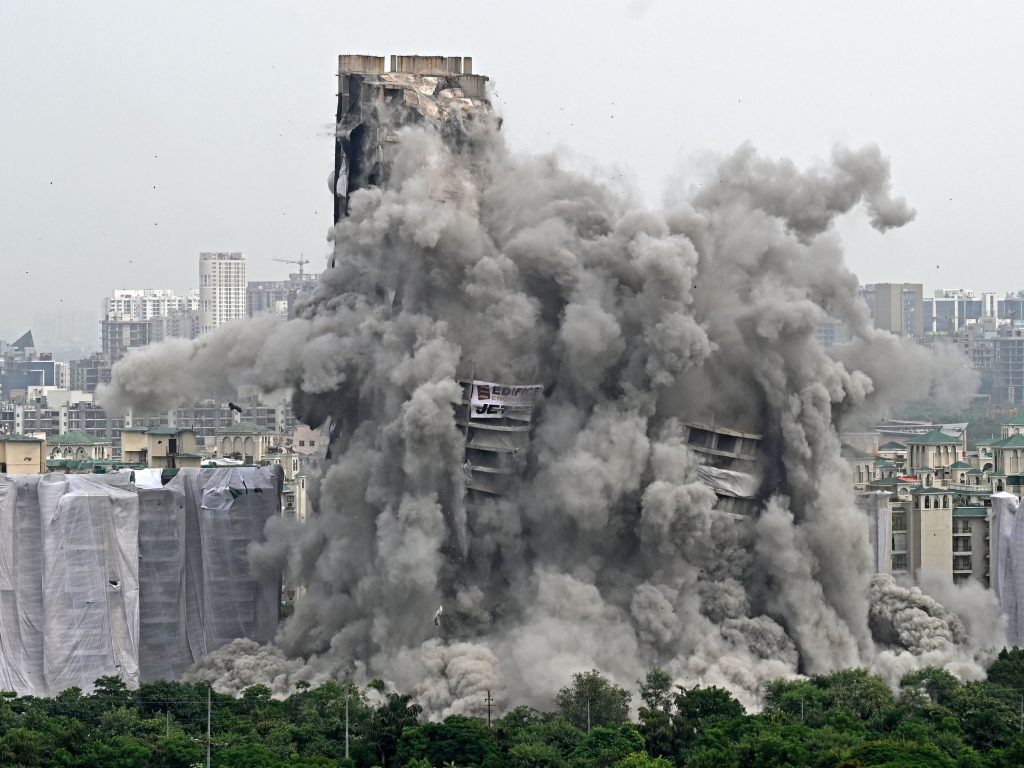- Indian authorities demolished two buildings built illegally in a warning to developers, per Reuters.
- News18 reported that the apartments could have brought in $150 million for the developers.
- The demolition cost $2.6 million, per News18, and left 80,000 tonnes of rubble.
Indian authorities blew up two skyscraper apartments built illegally in an apparent warning to rogue property developers.
The unoccupied 338ft twin apartment buildings in Noida, near the capital Delhi, were the largest to be destroyed in India.
It took just 10 seconds and 8,100 pounds of explosives to bring the two structures down on Sunday as crowds watched from nearby rooftops, Reuters reported.
The demolition followed an order from the Supreme Court last year after a lengthy legal battle. The towers were found to have violated multiple building regulations and fire safety norms, per the news agency.
Local outlets including News18 reported that the demolition would cost Rs 20 crore ($2.6 million), a quarter of which will be borne by builders Supertech.
Reuters reported that people living in nearby homes were evacuated ahead of the blasts that would leave more than 80,000 tonnes of rubble.

According to News18, each apartment cost around Rs 1.13 crore ($141,000). With about 915 apartments in the two buildings, Supertech stood to have made Rs 1,200 crore ($150 million) if all were sold, the outlet calculated.
"The building plans of the project including the two towers were approved by the Noida Authority in 2009 which was strictly in accordance with the then prevailing Building bye-laws announced by the state government," Supertech said in a statement reported by local publication Opoyi.
"We assure all our home buyers that the order of the Honorable Supreme Court will not affect any other ongoing project and all other projects will continue and we are committed to complete construction and deliver the flats to the allottees as per the schedule time."










